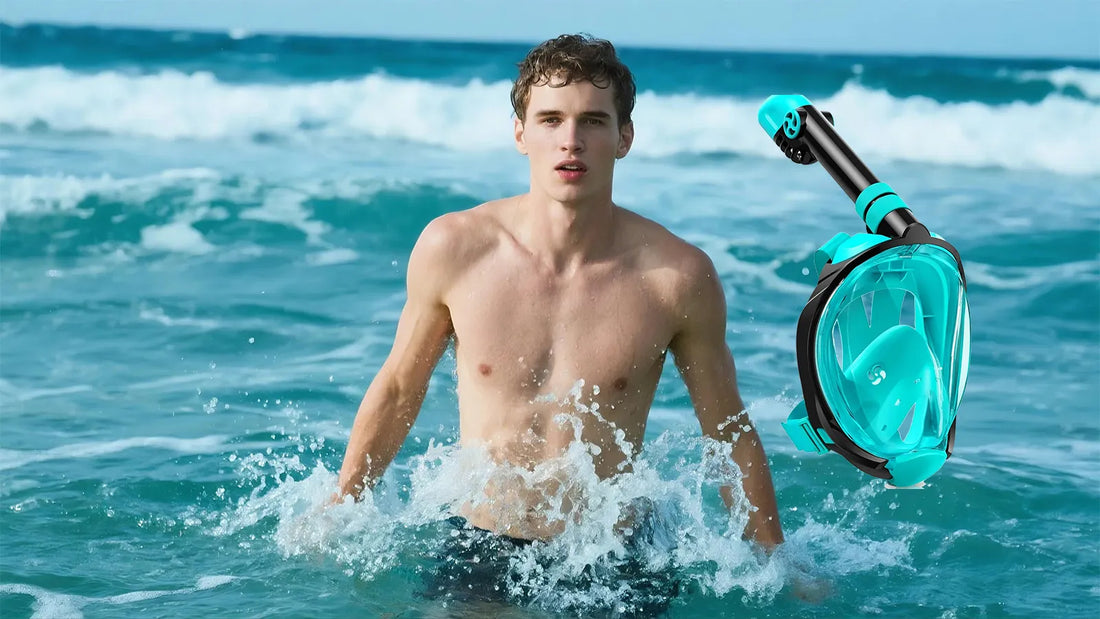Is snorkeling a sport? This question has sparked debates among enthusiasts, athletes, and fitness experts alike. While some argue that snorkeling is purely a recreational activity, others believe it meets the criteria of a sport due to its physical demands and skill requirements. In this article, we delve into the characteristics of snorkeling, its health benefits, and why it might just deserve a spot in the world of sports.
What Defines a Sport?
To determine whether snorkeling is a sport, it's essential to first understand what defines a sport. Generally, a sport is an activity that involves physical exertion, skill, and competition. It often follows specific rules and is practiced for enjoyment, fitness, or professional purposes. While competition is a common element in many sports, not all sports require it. Activities like swimming, cycling, and hiking are considered sports despite their non-competitive nature, as they involve significant physical effort and skill.
The Physical Demands of Snorkeling
Snorkeling requires a combination of physical and mental skills. It involves swimming, breath control, and the ability to navigate underwater environments. The activity engages multiple muscle groups, including the core, legs, and arms, making it a full-body workout. Additionally, snorkeling demands cardiovascular endurance, as participants often swim for extended periods in varying water conditions. The need for proper technique and equipment handling further adds to its physical and technical demands.
Skill and Technique in Snorkeling
Snorkeling is not just about floating on the water's surface. It requires mastering techniques such as efficient breathing through a snorkel, proper fin usage, and maintaining buoyancy. Advanced snorkelers often explore deeper waters, requiring knowledge of safety protocols and environmental awareness. These skills elevate snorkeling from a casual pastime to an activity that demands practice and expertise.
Health Benefits of Snorkeling
Snorkeling offers numerous health benefits, making it an excellent activity for fitness enthusiasts. It improves cardiovascular health, builds muscle strength, and enhances flexibility. The low-impact nature of snorkeling makes it suitable for individuals of all ages and fitness levels. Moreover, the calming effects of being in water and observing marine life contribute to mental well-being, reducing stress and promoting relaxation.
Snorkeling as a Competitive Activity
While snorkeling is primarily seen as a recreational activity, there are competitive events that showcase its potential as a sport. Competitions often focus on speed, endurance, and underwater navigation. These events highlight the athleticism and skill required in snorkeling, further blurring the line between recreation and sport. The growing popularity of such competitions suggests that snorkeling could evolve into a recognized sport in the future.
Environmental Awareness and Snorkeling
Snorkeling also fosters a deep connection with marine ecosystems. Participants gain firsthand experience of underwater environments, raising awareness about conservation and the importance of protecting aquatic life. This aspect adds a unique dimension to snorkeling, making it more than just a physical activity but also a means of environmental education.
Why Snorkeling Deserves Recognition as a Sport
Given its physical demands, skill requirements, and health benefits, snorkeling has a strong case for being classified as a sport. While it may not fit the traditional mold of competitive sports, its holistic approach to fitness, mental well-being, and environmental awareness sets it apart. As more people discover the joys and challenges of snorkeling, its recognition as a sport is likely to grow.
So, is snorkeling a sport? The answer may vary depending on who you ask, but one thing is certain: snorkeling offers a unique blend of physical activity, skill, and connection with nature. Whether you view it as a sport or a recreational pursuit, there's no denying its ability to transform lives and inspire a deeper appreciation for the underwater world. Dive in and experience the magic of snorkeling for yourself!

